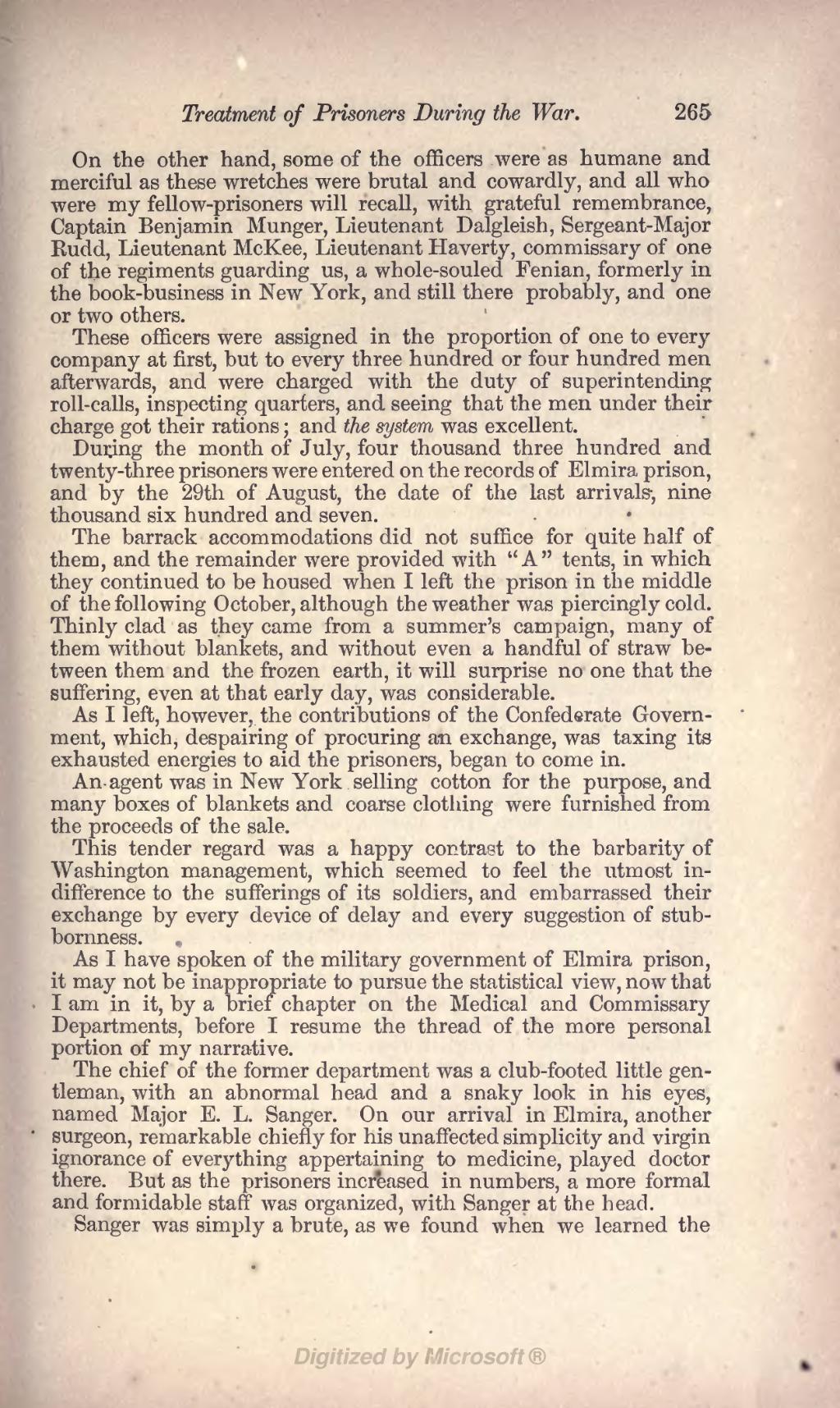On the other hand, some of the officers were as humane and merciful as these wretches were brutal and cowardly, and all who were my fellow-prisoners will recall, with grateful remembrance, Captain Benjamin Munger, Lieutenant Dalgleish, Sergeant-Major Rudd, Lieutenant McKee, Lieutenant Haverty, commissary of one of the regiments guarding us, a whole-souled Fenian, formerly in the book-business in New York, and still there probably, and one or two others.
These officers were assigned in the proportion of one to every company at first, but to every three hundred or four hundred men afterwards, and were charged with the duty of superintending roll-calls, inspecting quarters, and seeing that the men under their charge got their rations; and the system was excellent.
During the month of July, four thousand three hundred and twenty-three prisoners were entered on the records of Elmira prison, and by the 29th of August, the date of the last arrivals, nine thousand six hundred and seven.
The barrack accommodations did not suffice for quite half of them, and the remainder were provided with "A" tents, in which they continued to be housed when I left the prison in the middle of the following October, although the weather was piercingly cold. Thinly clad as they came from a summer's campaign, many of them without blankets, and without even a handful of straw between them and the frozen earth, it will surprise no one that the suffering, even at that early day, was considerable.
As I left, however, the contributions of the Confederate Government, which, despairing of procuring an exchange, was taxing its exhausted energies to aid the prisoners, began to come in.
An agent was in New York selling cotton for the purpose, and many boxes of blankets and coarse clothing were furnished from the proceeds of the sale.
This tender regard was a happy contrast to the barbarity of Washington management, which seemed to feel the utmost indifference to the sufferings of its soldiers, and embarrassed their exchange by every device of delay and every suggestion of stubbornness.
As I have spoken of the military government of Elmira prison, it may not be inappropriate to pursue the statistical view, now that I am in it, by a brief chapter on the Medical and Commissary Departments, before I resume the thread of the more personal portion of my narrative.
The chief of the former department was a club-footed little gentleman, with an abnormal head and a snaky look in his eyes, named Major E. L. Sanger. On our arrival in Elmira, another surgeon, remarkable chiefly for his unaffected simplicity and virgin ignorance of everything appertaining to medicine, played doctor there. But as the prisoners increased in numbers, a more formal and formidable staff was organized, with Sanger at the head.
Sanger was simply a brute, as we found when we learned the
